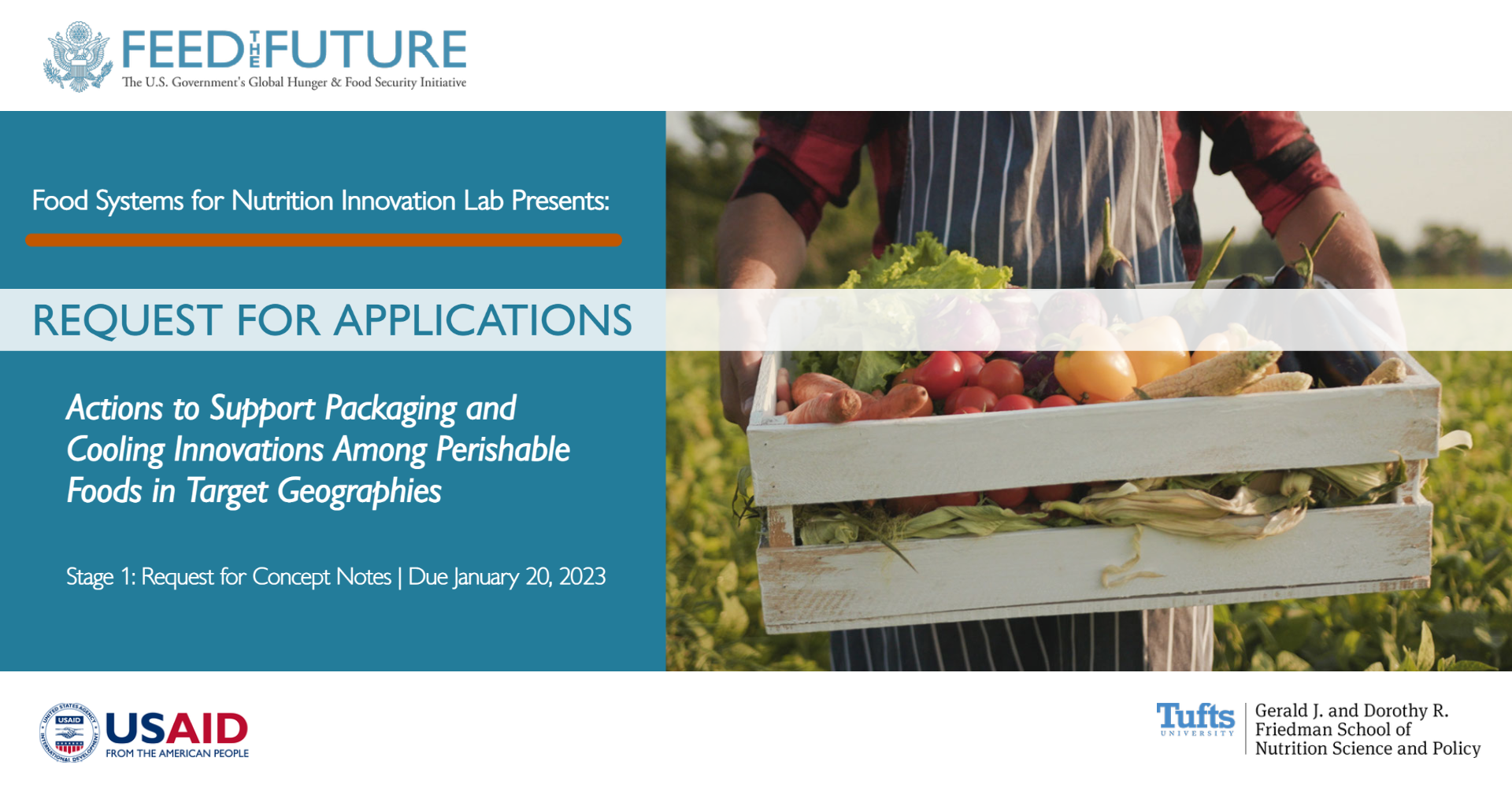
Food Systems for Nutrition Innovation Lab Request for Applications (RFA): Actions to Support Storage, Packaging, and/or Cooling Innovations for Perishable Foods in Target Geographies
The application deadline has passed.
The Food Systems for Nutrition Innovation Lab (FSN-IL), a five-year activity managed by Tufts University and supported by the United States Agency for International Development (USAID), Bureau for Resilience and Food Security (RFS), is seeking applications from eligible institutions focused on questions of cost-effectiveness and delivery of innovations (technologies, products, processes, practices and/or policies) to support food systems transformation for nutrition in target geographies. The focus of the response should be on actions to support storage, packaging, and/or cooling innovations to reduce loss and waste of nutrient-dense perishable foods, primarily in Malawi, Mozambique, Nepal, or Bangladesh. High-quality applications for appropriate work in other countries of Southern Africa or South Asia may also be considered.
The focus in FSN-IL’s first round of calls for applications is on identifying actions to support storage, packaging, and cooling innovations to reduce loss and waste and ensure food safety of nutrient dense perishable foods in target geographies. Priority will be given to high quality proposals that further our understanding of
- Policy actions to enable and regulate scaling of innovations
- Business strategies and models to enable scaling of innovations
- Cost effectiveness of bundling of innovations around storage, packaging, and cooling
These topical areas are not mutually exclusive but should lead to actionable investments that support food systems transformation for nutrition in South Asia and Southern Africa.
All applications must be led by a U.S. based academic institution and include at least one partner from the selected focus country. The lead U.S. based institution will serve as the primary subawardee, issuing lower-tier subawards to other institutions as necessary. Applicants are encouraged to demonstrate past performance or history of collaboration among the proposed partners as well as to define clear roles and responsibilities for each partner.
The RFA process will consist of two stages: concept note and full proposal. Applicants must first submit a Concept Note using the portal below by January 20th, 2023. Selected applicants will then be invited to submit a Full Proposal. More information can be found by downloading the RFA Form form below. Additionally, you will need to download the required templates for this concept note below. You will be asked to upload these completed documents during your application.
